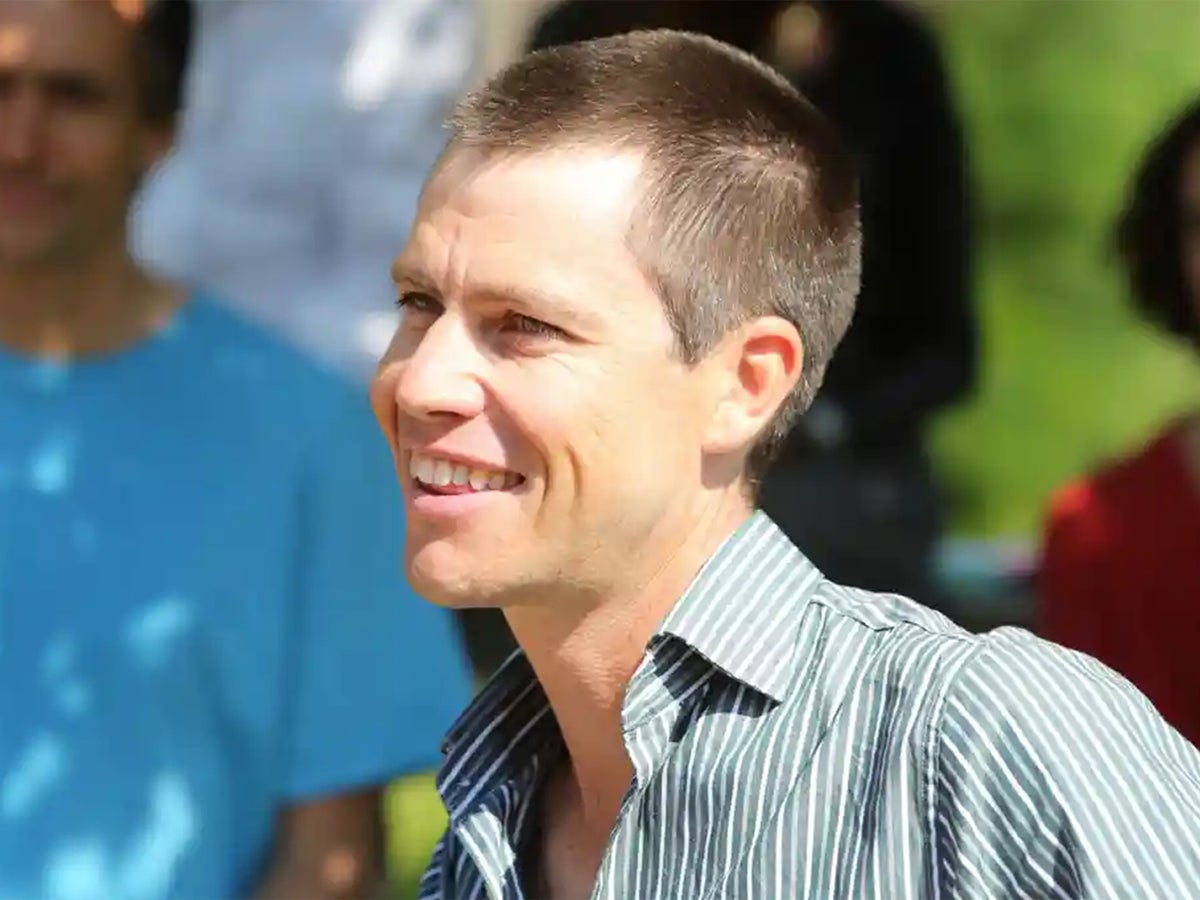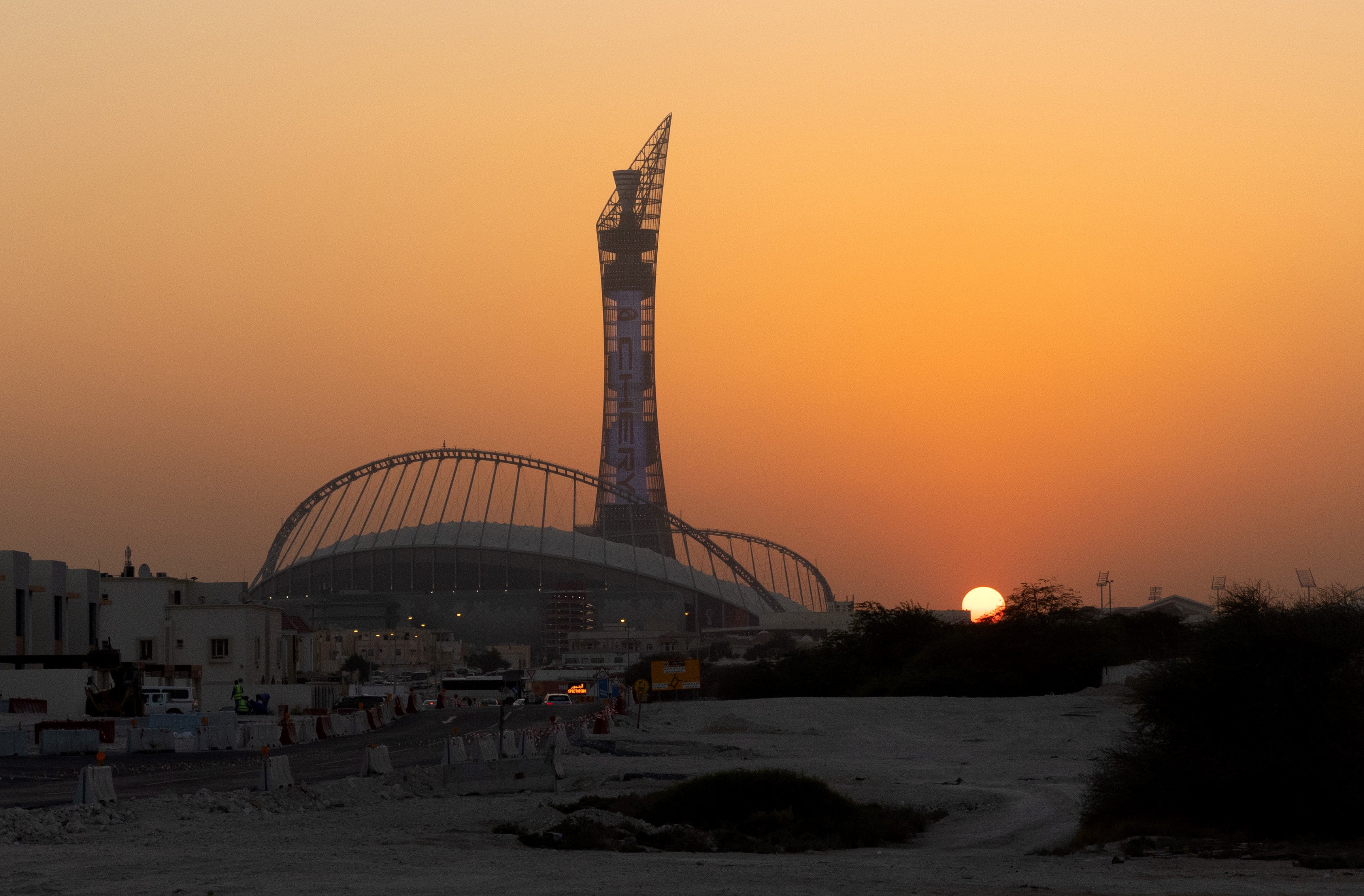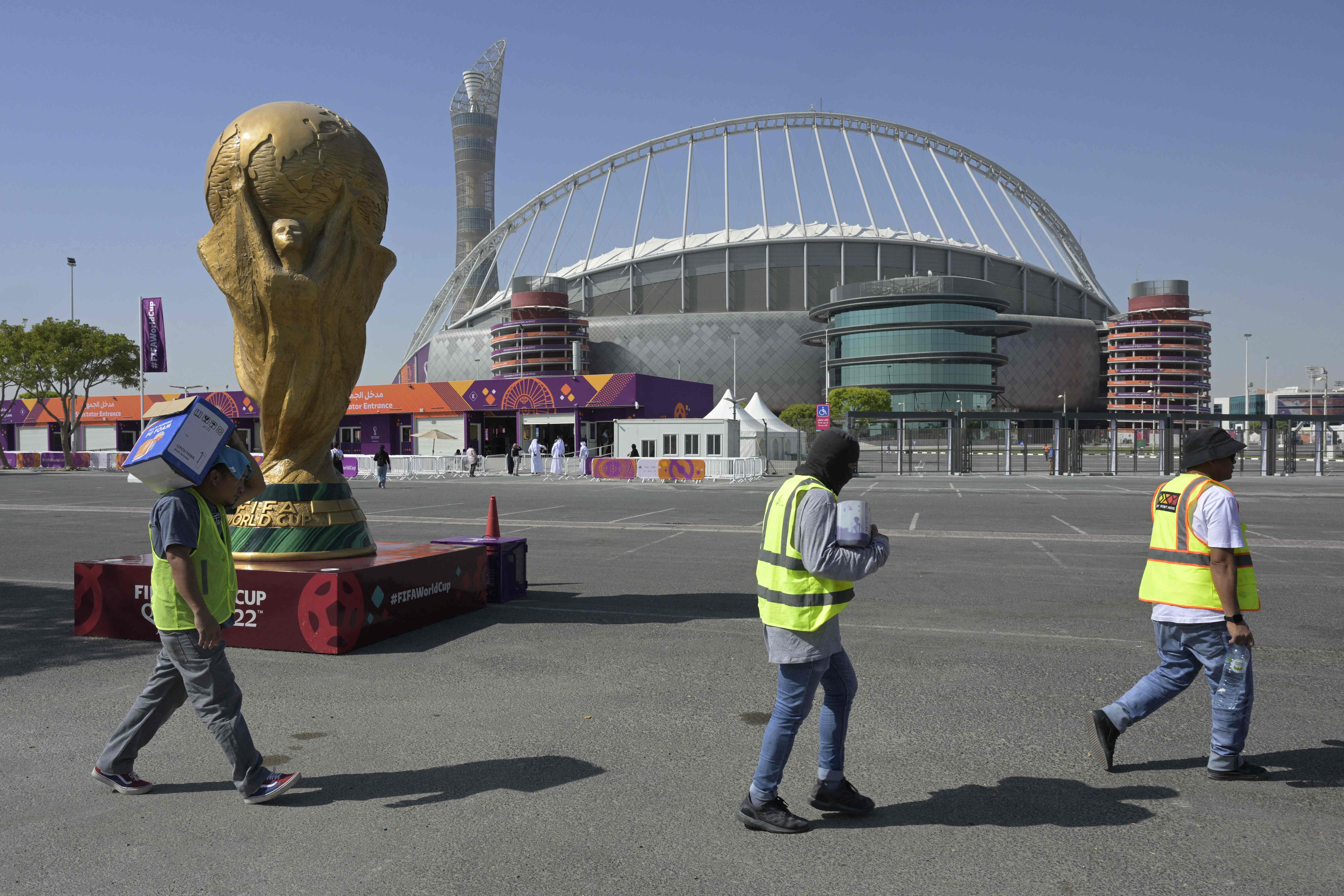
If English football administrators were desperate to avoid controversy about labour issues in Qatar during the World Cup, then the choice of venue for the team’s first match has put paid to any such hope.
On Monday lunchtime, when Harry Kane leads out England’s team for the game against Iran at the Khalifa International Stadium, he will do so in a venue touched by tragedy.
Khalifa, named after a previous Emir of Qatar, is the country’s national stadium. Of the eight venues where games will be played at the World Cup, Khalifa, built in 1976, is the only one to have been refurbished rather than built from scratch.
It was the first stadium to be made World Cup ready. It was also the venue for the World Athletics Championships, and where Liverpool beat Flamengo to win the Club World Cup final in 2019, and it is just a short trip down the usually congested Al Waab Street from where current Barcelona boss Xavi cut his managerial teeth at Al Sadd.
It is a well-known site for locals, signposted on Doha’s landscape by the nearby Torch Tower and close to the popular Villagio shopping mall, which, if you do not fancy walking while shopping, can be navigated by gondola.
It is situated in an area of the Qatari capital that will evoke sadness for some. Villagio was the site of a disastrous mall fire in 2012, which left 19 people dead, including 13 children, as the blaze started in a nursery located in the mall. It was one of the deadliest incidents ever to occur in Qatar.
And the grim shadow cast by Villagio extends far enough to hang over the nearby Khalifa stadium, one of the venues at the centre of the controversy over World Cup workers’ deaths.
In January 2017, Zac Cox fell 40 metres (130ft) to his death while working on the renovation of Qatar’s national stadium in western Doha. Cox, 40, fell from rigging when a platform he was trying to install collapsed after lever hoist equipment failed. He was a specialist in construction work on tall buildings.
A subsequent coroner’s inquest held in Brighton – Cox was a dual British/New Zealand citizen who had lived part of his life in Hove – found that a “perfect storm of events” had led to his death. It criticised the decision to speed up the refurbishment of the stadium, and the use of substandard equipment during work, especially the rusting lever hoists.
“If you cut to the quick, the root cause of the accident was that the workers were being asked to use equipment that was not fit for purpose,” said coroner Veronica Hamilton-Deeley. One of Cox’s fellow workers told the inquest that the hoists “should have been thrown in the rubbish bin”.
What followed after Cox’s death added insult to tragedy. A South African colleague of his, Graham Vance, was arrested within hours of the incident and accused of negligence. The Qatari authorities sought his imprisonment.

He was only allowed to leave the country after 10 months, and was subsequently cleared of any responsibility. Then it emerged that a report completed within days of Cox’s death, explaining the circumstances of the incident, had not been given to the dead man’s family. The argument over exactly who was responsible for his death remains unresolved.
It is claimed that thousands have died while helping Qatar to prepare stadiums for the World Cup. Qatar denies this claim, saying that there have been 37 deaths among workers directly involved in the construction of tournament venues, and that 34 of these deaths are classified as “non-work-related”. Cox’s death was one of those specifically related to construction being carried out on a tournament venue that will be showcased to the world in the coming weeks.
He is thought to be the only Western construction worker to have been killed during the massive infrastructure work undertaken in preparation for the World Cup, and the only Briton. His case is also unique in that an inquest was held into his death – something that has proved impossible for other grieving families.
Given Qatar 2022’s propensity to generate relentless streams of controversy, it is ultimately not surprising that, of all the venues at which England could have played their first match, it ended up being at Khalifa International Stadium.
Until now, England’s team have spoken only tentatively about workers’ rights, seeking at once to address the issue but to avoid annoying their hosts. It is a tactic that has not really worked.
Gareth Southgate, who has proved the most media-adept of all England coaches, was instantly criticised for his claim earlier this month that migrant workers in Qatar were “united” in wanting the World Cup to take place. There has been a picture call with migrant workers from the England training camp, south of Doha.
Much more positively, the English Football Association – in partnership with other European FAs – has publicly supported the need for a compensation fund for migrant workers and their families, to recompense those who have suffered through helping Qatar to prepare for the World Cup, either directly (in relation to the stadiums themselves) or as a result of their involvement in the vast infrastructure projects that will support the event.
To Fifa’s shame, it is yet to commit to such a fund for abuses suffered during preparations for the tournament, despite being expected to make billions from the tournament.

Human rights groups say that the president of Fifa, Gianni Infantino, should commit to the fund as a lasting legacy of arguably the most controversial World Cup ever to take place. So far, Mr Infantino has kept his silence.
“Fifa cannot use the spectacle of the World Cup to dodge its responsibilities,” says Amnesty International’s Steve Cockburn. “It has a clear duty towards the hundreds of thousands of workers who suffered while building the stadiums and infrastructure needed for the tournament.”
Much of the next four weeks is likely to see the volume turned up on the Fifa boss to agree to some sort of settlement. But whether he does or not, Qatar’s stadiums will serve as an inescapable reminder of the human cost of the tournament.
For England, there is a poignancy to the choice of venue in which their World Cup campaign begins. But ultimately, whatever Kane and the team manage to do in the next few weeks, none of it will have the lasting impact of what happened at the Khalifa stadium almost six years ago.







